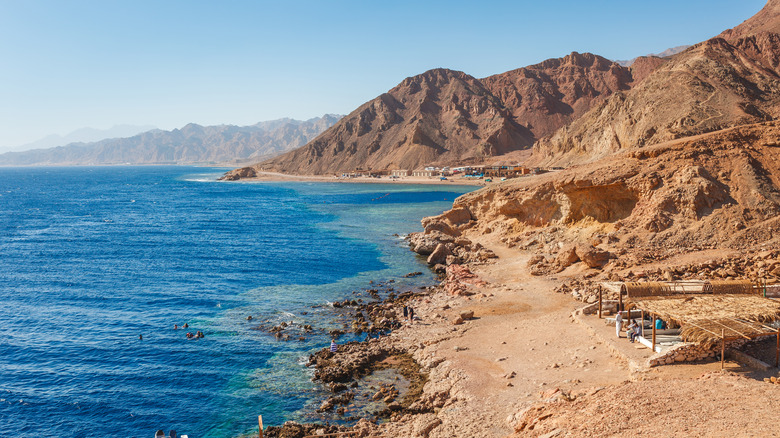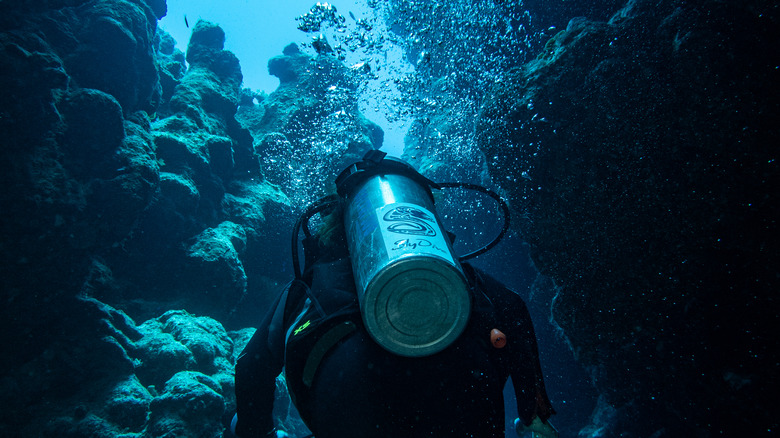This Diving Spot In Egypt Is One Of The Most Dangerous Places In The World
Just north of Dahab, Egypt, a village on the Red Sea, a small cove under the frowning mountains hides a secret. Scuba divers and free divers come here from all over the world, even though there are no coral reefs or beautiful fish, and the splendors of Sharm-el-Sheikh are only about an hour's drive south. What brings them here is death, almost certain death. Rushkult explains that a short swim from the lonely beach is all it takes to reach the fabled Blue Hole of Dahab, the deadliest dive site in the world.
The Blue Hole is a cavity in the seabed, about 262 feet (80 meters) across and up to 394 feet (120 meters) deep. About halfway down is a magnificent natural arch, which divers come to explore and admire. The arch frames the opening of a tunnel to the open sea. None of this is remarkable; other sites are far deeper, and many are more beautiful. None of them, however, can match the Blue Hole's death count. About 150 divers in the past decade have waded into the still waters of Dahab and floated back to the surface limp.
The danger is the point
The first death at the Blue Hole belongs to local legend, which tells of a girl who threw herself in to escape an arranged marriage, according to The Guardian. Cursed or not by her death, the Blue Hole has killed hundreds of experienced divers through a process called nitrogen narcosis. The Guardian quotes the chief medical examiner of Denver, Colorado, Dr. James Caruso, as comparing the effect of nitrogen at 100s of feet to drinking alcohol. The deeper you go, the drunker you get. Like alcohol, this condition impairs judgment and slows reactions, and the giddiness it induces may feel dangerously pleasant. Eventually, it leads to a blackout. Under Dahab's arch, or worse still in the tunnel to the Red Sea, this inevitably means death.
Ultimately, that risk is what brings adventurers to Dahab: to brave the deadliest dive site in the world. Diving instructor Alex Heyes, who lived for years in Dahab, ascribes the hundreds of deaths to "people being idiots." "They're not prepared for that kind of depth," she told The Guardian. "A bit of knowledge can be a dangerous thing."

